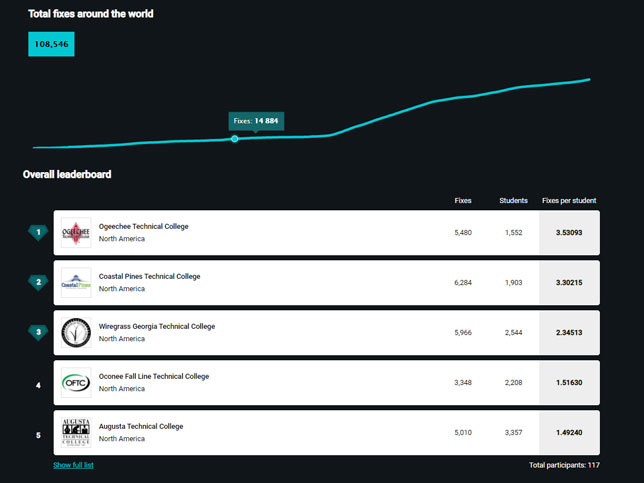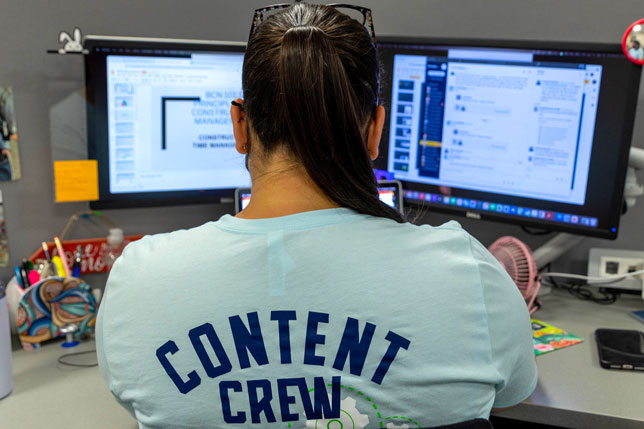Accessibility Challenge Fixes 108,000 Course Files in a Single Day
- By Dian Schaffhauser
- 06/01/21

Fix Your Content Day leaderboard
Competitors from 115 universities around the world dedicated May 20, 2021 — Global Accessibility Awareness Day — to fixing course accessibility and winning public recognition for their efforts. They expanded accessibility on a total of 108,000 course files, nearly doubling the total of 57,000 improved in 2020.
The project was instigated by teaching and learning technology company Blackboard, in its second annual "Fix Your Content Day Challenge." Participants used Blackboard Ally, the company's digital accessibility tool, which is "learning management system-agnostic." The program works with Blackboard Learn, Moodle, D2L's Brightspace and Instructure Canvas.
According to the company, the use of the tool can make course materials more accessible for all students, not just those with disabilities. Ally uses machine learning algorithms to automatically suggest alternative formats for course content, such as semantic HTML, audio, ePub, electronic braille and others. It also checks course content, scores it and then provides instructors with feedback and guidance through the LMS on how to fix the accessibility issues.

Fix Your Content Day at Florida International University Online
Challenge winners were selected by the number of files fixed per number of students enrolled at the institution and by region. Ogeechee Technical College in Statesboro, GA, grabbed the top spot, fixing 3.53 files per enrolled student, a total of 5,480 files. The institution that fixed the most files was also declared a winner. That was Florida International University Online, based in Miami, FL, which repaired a whopping 16,364 files. Other winners included Charles Darwin University in Australia for the Asia Pacific region; York St. John University in England for Europe; and the British University in Dubai for the Middle East.
"We were so inspired to see that around the world, institutions took up the challenge and shined a light on digital accessibility in the classroom," said Dan Loury, senior product management director at Blackboard, in a statement. "As a community, we know one day and one competition isn't the end, rather the beginning of an ongoing journey toward learning experiences that are more inclusive, equitable and accessible."
About the Author
Dian Schaffhauser is a former senior contributing editor for 1105 Media's education publications THE Journal, Campus Technology and Spaces4Learning.